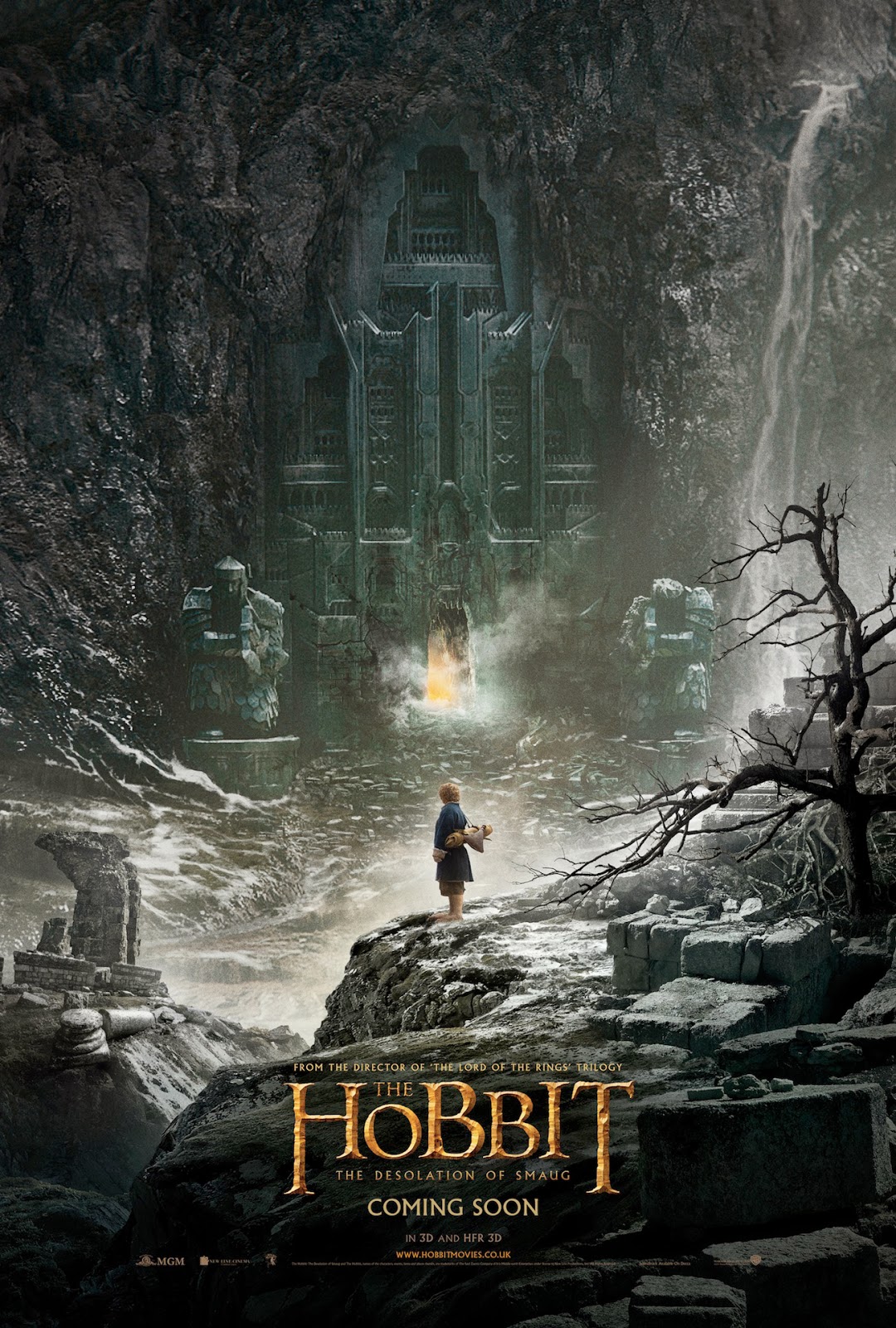The aim is to capture the feelings a film gives you as instantly as possible, the excitement, the disappointment, the joy - whetever.
Which is where Hobbit 2 has caused me a problem.
I awoke yesterday morning feeling like I'd gone at it big-style at a Baggins bash. If a part of me didn't hurt, it was because I couldn't feel it. But I soldiered on.
It was Hobbit day, and if nothing else I had to try and wipe last year's disappointment from my memory. After the joy of the Lord Of The Rings trilogy, I owed co-writer/director Peter Jackson another chance.
But by the gods it was tough. And I decided to take a bit of time to look back, as it was hard to work if my health was clouding my views.
Also, the minute I got home I fell asleep. And didn't wake up 'til it was time to go to bed.
So, here we are, the cold light of the afternoon after. And I still have no idea what Peter Jackson thinks he's doing.
Let's not dwell on the whole 'turning a short book into a trilogy' thing - it's a dumb idea, but it's done now.
Let us, instead, start with a recent interview in which Jackson said the great thing about getting the first film out of the way was that you didn't have to dwell on who was who - that was all sorted - you could just hit the gas and get on with the story.
Which raises the first of many questions - mainly the fact that if that were the case, why did we need an opening ten minutes of recap? If everything was so well set up in An Unexpected Trilogy, why did we need telling AGAIN?
Other questions still linger from the first film, including how a tribe of dwarves from the same mountain have such a wide variety of regional accents - something he has added to this time round by having a family with, seemingly, Welsh accents whose eldest daughter is from East London.
Maybe she's adopted.
Questions also need asking about the two hour fourty minute running time. The Hobbit is a short book, and somehow Jackson is going to stretch the whole shebang to close to ten hours. That's a lot of padding.
Tolkien purists will point out Jackson's done this by padding with characters he's made up himself, but he's also done this by going down the 3D route and adding a lot of scenes purely for the benefit of having things come flying out of the screen.
He really should have stuck to telling the story.
Ahh, yes, the story. This being the middle bit of the trilogy, we're covering the bit through the woods to the mountain to meet the dragon. This takes almost three hours. Kubrick did the birth of the universe and the whole of evolution in 90 minutes.
But let's leave quibbles of the running time aside. What's done is done, and he's doing it all again next year, so moaning won't change anything.
Let's find some positives.
Martin Freeman is again wonderful as Bilbo. Having grown into the role, he owns every scene he's in and more than holds his own going up against Sir Ian McKellen's Gandalf.
Sylvester McCoy is actually better this time round as Radagast, while Evangeline Lilly is stunning as Tauriel.
And the action set-pieces are well done. People go down a river in barrels, Bilbo surfs a sea of gold coins, orcs die in many a splendid way - these are all things Jackson does well.
Then there's Smaug.
We already know Benedict Cumberbatch is a good actor, but he's also a damn fine dragon it turns out. Oozing sinister intent, mixed with a smidge of sexual charm, you'd go on a date with this dragon. You know it won't end well, but hey...
But none of this is enough to stop Hobbit 2 from being anything more than OK.
Yes, it's better than the first one, but it lacks focus. Too many times you'll leave one scene mid-action to check in with another character's bit of the story before cutting back to the main bit of the plot. Which makes the thing feel a bit disjointed.
It also makes you wonder how long it takes Bofur to actually find the herbs, given what else has happens after he leaves the house...
Ahh, Bofur. And the many other dwarfish folk. Jackson still hasn't got a grip on them you know.
What was clear in the first Tolkien trilogy was Jackson knew the characters. Knew them, loved them, and made each one shine.
This is not the case here.
OK, this time we're saved the singing and the washing up, but Thorin Oakenshield aside (a fine performance again by Richard Armitage) and possibly Balin (yes, it's Ken Stott under there), the other dwarves have all the depth of a fine mist.
And Jackson seems so hell bent on getting each of them on the screen, he's sacrificed the story and the action.
There's also absolutely no need to throw an elf-dwarf love story into the mix.
Like I said, this isn't Hobbit 1 - it has more zip, more flair, more swish. But it's still not brilliant.
When you look back at the Lord Of The Rings films, you can see what Jackson can do as a director. Those films were epic. And you didn't care that they were too long, because you were having so much fun watching them.
And it's remembering this that makes you realise that, again, Jackson has fallen short of expectations. Which doesn't make one look forward to There And Back Again.











